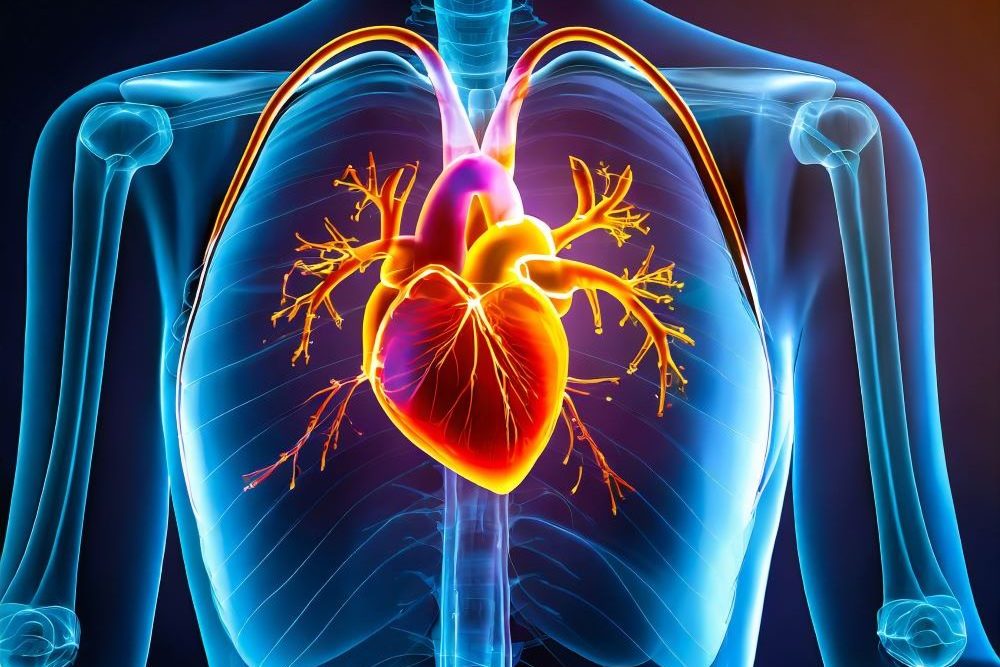Symptoms of Heart Failure in Women

Heart failure is a dangerous medical disorder that develops when the heart cannot adequately pump blood throughout the body, resulting in insufficient blood flow. Although it is a condition that affects both men and women, research in the past few years has shown that women have different symptoms than men.
This article will discuss early warning signs, the typical age of female heart attacks, and what symptoms indicate heart blockage in women. Knowing these things can help keep you and your loved ones safe.
What Are the Early Signs of Congestive Heart Failure?
Congestive Heart Failure Symptom 1: Weakness and Fatigue
For both men and women, an ongoing feeling of weakness or fatigue can be one of the first indicators of heart issues. This is more than feeling this way after a busy day. Rather, these feelings can prevent you from doing your normal tasks.
Additionally, breathing issues, particularly when lying down, maybe a warning sign of heart failure. You might also notice that it’s harder to catch your breath during activity.
Congestive Heart Failure Symptom 2: Fluid Retention
Another common symptom of heart failure is fluid retention, particularly in the legs, ankles, and belly. This swelling often gets worse as the day wears on. Swelling like this is a clear indication that something is wrong, especially if it is linked to pulmonary edema, which is caused by – among other things – congestive heart failure.
An irregular heartbeat or palpitations might also signal issues with your heart.
Finally, new research exists that shows a persistent cough, particularly when it is associated with phlegm that has a white or pink tint indicating blood, may indicate an accumulation of fluid in the lungs, which may be a sign of heart failure. This cough is known as cardiac cough.
What Signs Should Women Be Mindful Of?
Women should not only be mindful of the heart failure symptoms above but also pay attention to where they feel pain and discomfort. While chest pain is widely associated with heart failure, women might also feel pain and discomfort in their neck, jaw, shoulder, upper back, or abdomen.
The pain can range from a dull and consistent ache to something more. If the pain is consistent and can’t be linked to another issue, it’s a good idea to seek medical treatment.
Also, women might notice feelings of nausea or have bouts of vomiting that aren’t related to an illness or something they ate. This is another sign of heart failure that signals the need for medical care.
What Are the Signs of Heart Blockage in Females?
Heart blockage, commonly referred to as coronary artery disease (CAD), might also look different in women. Additionally, the signs linked to heart blockages might also be different than the traditional signs of cardiac issues we’ve been taught to look for.
For this reason, it’s critical to not only pay attention to the heart disease symptoms above but also to the ones below to ensure optimum heart health.
The Following Are Indicators or Symptoms Of Heart Blockages That Women Need To Be Aware Of:
- Perspiration: This is beyond the normal sweating that might occur during physical activity. This perspiration comes on quickly and causes you to sweat more profusely. Think of it more as a cold sweat.
- Lightheaded Feelings: Dizziness, lightheadedness, or fainting may be signs of an issue with the heart’s blood supply. If this happens with no indication of why, it’s a good idea to talk with a medical professional.
- Inexplicable Fear: For no apparent reason, some women may feel anxious or as though something bad is about to happen. Often, this might be swept under the rug, especially if they don’t want to call attention to themselves, but if a loved one mentions feeling this way to you, ask them about the other congestive heart failure symptoms that have been listed.
It’s crucial to remember that women might not always identify or connect these symptoms to a cardiac issue. Also, it’s worth mentioning that the symptoms of a heart blockage in women might manifest during rest or regular activity, but in men, they typically manifest with physical exertion.
Average Age of a Heart Attack in Females
Heart attacks are common in older adults, although they can happen at any age. Knowing this, it’s essential to know that heart attacks usually strike women later than they do men, typically around the age of 70.
However, coronary artery dissection (CAD), which was mentioned above, can trigger heart attacks in women after the age of 55 with symptoms like the ones mentioned above often happening weeks before the actual heart attack. In fact, CAD is responsible for almost half of the heart attacks that occur in women of a younger age.
Final Notes
Early detection of congestive heart failure and comprehension of heart blockage symptoms in women are essential for prompt intervention and improved results. Women should take the initiative to keep an eye on their cardiovascular health, notice any strange heart failure symptoms, and go to the clinic to seek medical assistance or treatment when necessary.
Furthermore, leading a heart-healthy lifestyle that incorporates regular exercise, a well-balanced diet, and stress reduction will enhance cardiovascular health in general.


